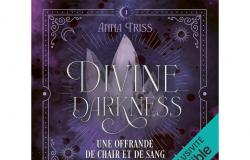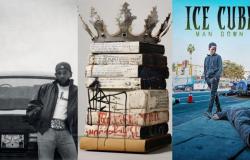The famous British chef is currently in Australia, not to promote the incriminated novel, but his latest cookbook, Simply Jamie. Unfortunately for the latter, it is not this one which makes the headlines, but the sequel to his first children's work, Billy and the Giant Adventurepublished in 2023.
« I'm devastated »
In question: the subplot of Billy and the Epic Escapelocated in Australia, accused of perpetuating harmful stereotypes and trivializing complex and painful stories, by the National Aboriginal and Torres Strait Islander Education Corporation. This association intends to work for First Nations communities in Australia, and has urged Jamie Oliver to withdraw his book from sale.
The novel features a young First Nations girl, Ruby, living in foster care in a community near Alice Springs, who is kidnapped by the villain of the novel, and who possesses magical powers.
Critics particularly pointed to the way in which the girl's powers were described, seen as an oversimplification of the elaborate spiritual beliefs of the First Nations, reduced to a simple ” magic “, and how the work failed to distinguish between the various languages and traditions of these peoples. In particular, it was noted that the character of Ruby used First Nations terms in an unrealistic manner, given the region where she was raised.
Furthermore, according to the association, the representation of child abduction “ dangerously trivializes the ongoing trauma associated with Australia's violent history of child removal ».
Faced with the controversy, the star chef declared, to the Guardian : « I am devastated to learn that I have caused harm and I sincerely apologize for this. » And to add, with the New York Times : « It was never my intention to misinterpret this deeply painful question. With my publishers, we decided to withdraw the book from sale. »
The children's book's publisher, Penguin Random House UK, also expressed regret, acknowledging the lack of consultation with indigenous communities or individuals before the book's publication. “ It was a mistake on our part not to have done so. This should have been done the author had requested one and we apologize unreservedly “, the company said.
In other words, he missed the famous “ sensitivity reader » (or editorial deminers, in French), which causes so much ink and pixels to flow. Kooma Nguri author Cheryl Leavy, a descendant of indigenous Australians, goes further, speaking of “ basic industrial standards » which it would be a question of applying, with the use of “ conseillers experts » for everything « sensitive subject ».
Anita Heiss, Wiradjuri author – an Aboriginal group – and publisher of a Simon & Schuster group house dedicated to First Nations, Bundyi Publishing, declares for her part: “ First Nations people must be involved at every stage of the process, from acquisition to publishing to sales and marketing. Only then will our stories be told with all the respect they deserve. » And added: “ There is no place in Australian publishing (or anywhere else) for our stories to be told through a colonial lens, by authors who have little or no connection to the people and places they write about. »
From erasure to rehabilitation
The question of first peoples in countries like Australia or Canada remains highly sensitive, since it touches on both colonial history and contemporary dynamics of recognition and reconciliation. In Canada, First Nations, Inuit and Métis people have been historically marginalized and their culture often misrepresented or ignored.
In response, a growing movement to include the voices of indigenous peoples in literature and the arts, and for their representations to be authentic and respectful, has developed. Among the players in this initiative, we can cite the publisher Mémoire d'Encrier, based in Quebec, and run by Rodney Saint-Éloi and Yara El-Ghadban.
In 2019, in a declared approach to reconciliation with the first peoples, the Providence Catholic School Board in Ontario made the controversial decision to destroy 5,000 works. Suzy Kies, who introduced herself as a “ guardian of knowledge » indigenous, had framed this initiative, denouncing the harmful stereotypes conveyed by these books.
This initiative included a burning during a purification ceremony, where around thirty books, including comics such asAsterix, Lucky Luke and Tintin, were burned. They were targeted for their content deemed stereotypical and racist.
In Australia, the situation is similar with Aboriginal and Torres Strait Islander peoples, where combating stereotypes in literature and other forms of media has also become a major concern.
Photo credits: Scandic Hotels (CC BY-SA 3.0)
By Hocine Bouhadjera
Contact : [email protected]






